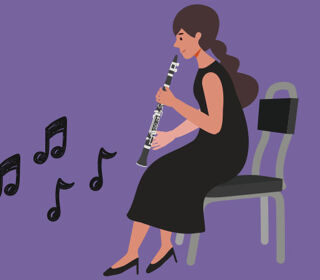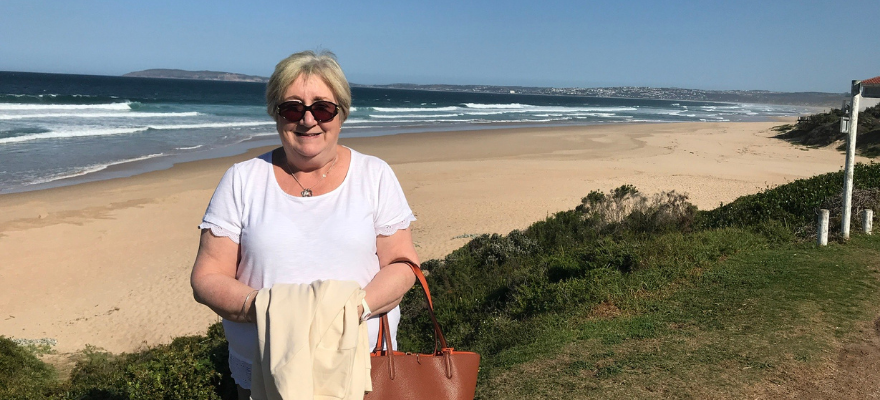
Blog

As a young girl growing up with working class parents in the East End of London during the 50s and 60s money was tight but aspirations were high. Most neighbours did not have cars or washing machines and owning a piano was a luxury. I was fortunate to find schoolwork fairly easy as I could read by the time I started school at four years old, due to an aunt who worked for the company that distributed the Janet and John reading scheme books. Although I passed the 11 plus exam (which was the entrance criteria for grammar school at the time), a year early, our Headteacher said I was too young to move on to secondary school and I had to stay behind for a year with my actual age group.
This could have been a very boring time for me but I had just started having clarinet lessons (paid for by my mother’s tips as a barmaid) and I spent quite a bit of my free time practising and trying to copy my father’s big band recordings. My clarinet teacher entered me for a junior exhibitioner scholarship at the Royal Academy of Music and at the audition the clerk on the desk said “that’s an unusual instrument for a girl to play”. I was awarded the scholarship and the Brown Owl at Brownies said “How ridiculous, girls don’t do this!” when mum proudly told her of my achievement.
Undeterred by Brown Owl, I started at the Saturday morning Junior Academy, aged 11 – it was not without its social challenges and I had to take myself there on a bus and two tube trains. Most other students were from wealthy backgrounds, attending independent schools and being dropped off each week by the family chauffeur. They also had a very different accent from this young Cockney girl. It did not occur to me at the time that the system needed to be more inclusive – what mattered to me was the music and being the best I could be (so I would get the chance to play all the lovely orchestral clarinet solos!).
By the late 1960s, Peter Fletcher had been appointed the lead for music education in London and he developed the London Schools Symphony Orchestra with an emphasis on inclusivity. For the first time I found myself playing alongside young musicians of a similar social background (mostly the brass and wind players – for some reason the string players were mostly from wealthier backgrounds).
After a scholarship to the Paris Conservatoire at the age of 21 and a career as a freelance musician I decided to concentrate more formally on music education. I had found myself playing in long runs of West End shows and there is only so many times you can play the clarinet solo in Fiddler on the Roof before moving to automatic pilot! Orchestra pits and symphony orchestras could also be a hotbed of discrimination but I just concentrated on the job, ignoring any sexist remarks.

At an interview for the post of Head of Woodwind Teaching in the London Borough of Barnet, a woodwind teacher colleague came into the waiting area and said “a woman could never do this job!”. I got the job and went on to become Head of the Music Service, taking the Music Service out of Local Authority control to create a charity. As head of the charity I became one of the few female CEOs in the country (at the moment only 5 per cent of CEOs are women). I would occasionally experience sexist remarks from colleagues but my mantra was to treat others with the respect I would want to be treated with and that seemed to kick discrimination into touch! Although I had been prepared for sexual discrimination as a performer it often surprised me how much discrimination there was towards women in the field of music education,
Here I am now at the age of 65 fulfilling an ambition to carry out doctoral research. My advice to anyone who feels marginalized, different or discriminated against is to listen to your heart and stubbornly follow your dreams. This way you can contribute to the change that society needs for the better.